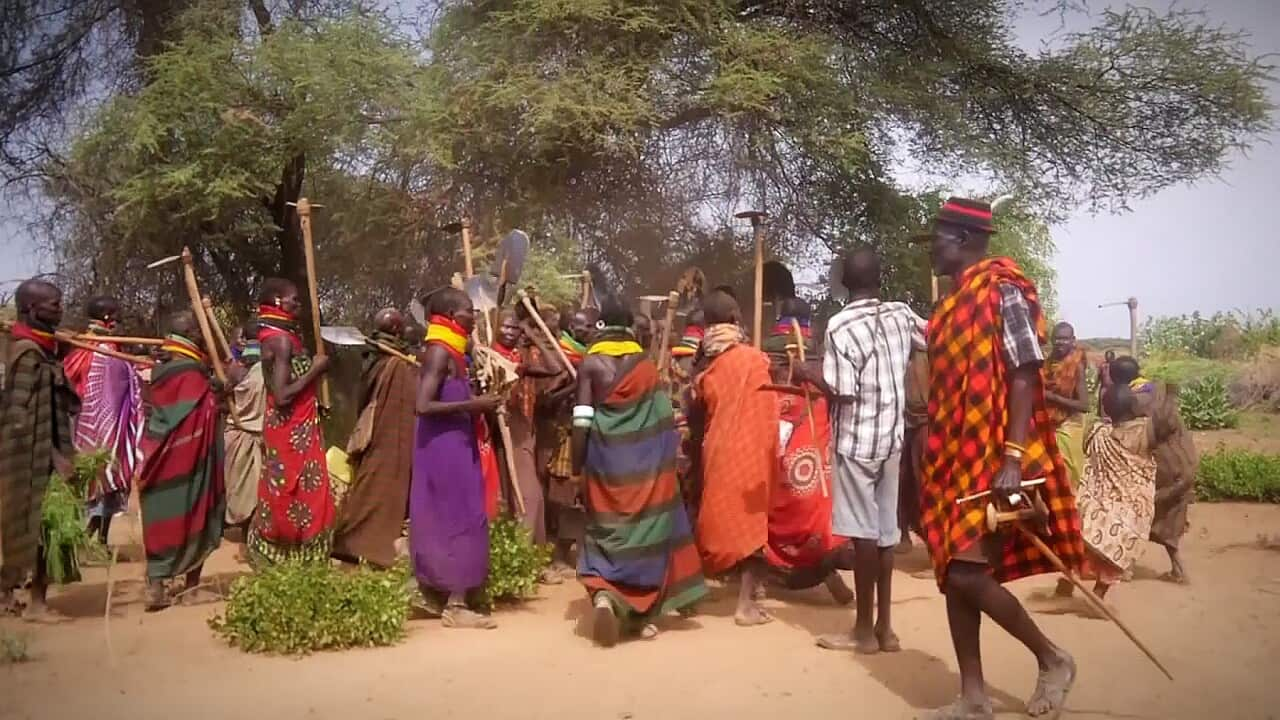Kangalitai farmer Lokale Ekitowou says normally at this time of year he would be somewhere between the plains of Turkana and West Pokot, herding his cattle.
But today he is weeding on his farm and soon his maize crop will be ready for harvest.
"Due to drought in our traditional graze lands, we went to encroach on a neighbouring village. They chased us in a gunfire exchange where we lost all the cattle and all my friends were killed by the bullets. So I decided to come back home where I found crop farming had already taken traction. I decided to join crop farming because the weather was no longer promising us grass, and the short rains could sustain some crops in my area."
Over in Kajiado County, pastoralist Maiyani Melonye tends to his cattle.
He was raised between the plains of Maasai Mara and the hills of Oldonyo-Sabuk, an expanse divided by more than 300 kilometres of Savanna grassland.
Melonye believes he is the last of his generation to live the life of a traditional Maasai nomad.
"From the way the weather has become unpredictable, our children will never be like us, the way we were brought up on how to locate grazing lands. They will only know the language but never understand the Maasai traditions."
The sound of cattle herding that has been part of Maasai tradition for centuries may soon become just a memory.
Download the free SBS Radio app to listen live and on-demand or explore podcasts.
https://podfollow.com/sbs-japanese
Visit our Facebook for more Japanese stories and images.




